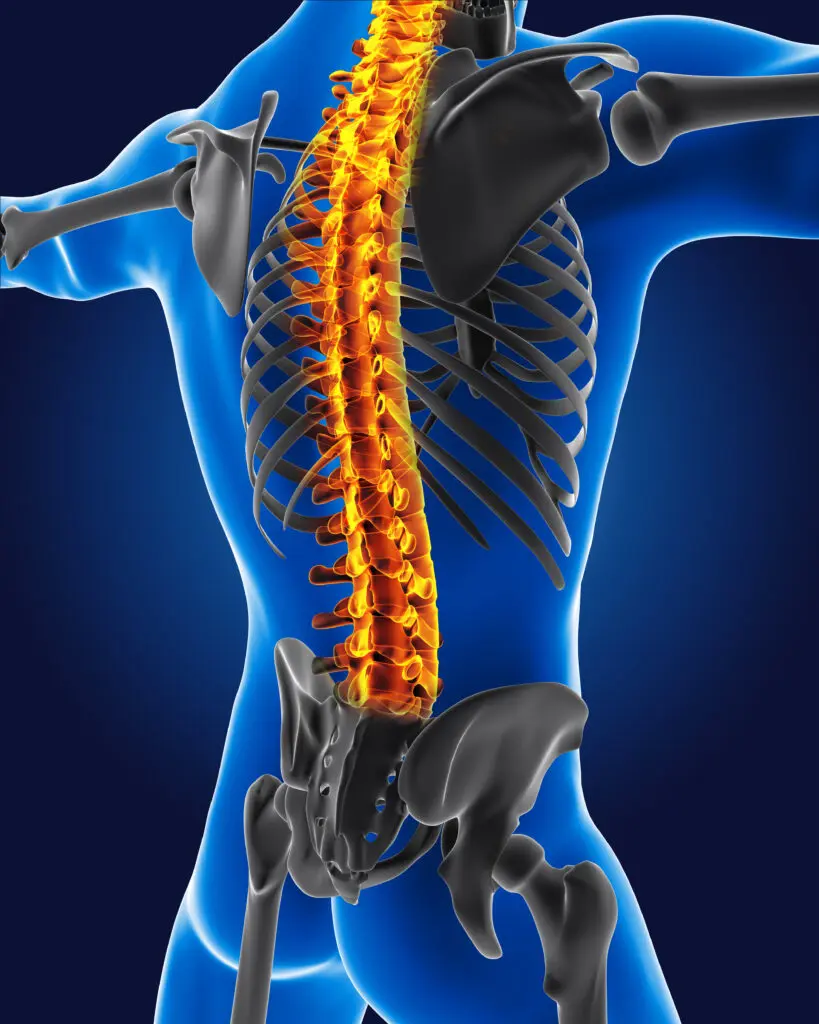- Home
- Spine Tumor
Spinal Tumor
- About Dr. Albert P.
Los Angeles Spinal Tumor Specialist
Living with constant back pain, weakness, or numbness can be frightening, especially when the cause is unclear. A spinal tumor can press on nerves or the spinal cord, causing pain and mobility problems that affect daily life.
Dr. Albert P. Wong, a top neurosurgeon in Beverly Hills and Los Angeles, provides advanced spine surgery and precise treatments for spinal tumors to help patients move freely and regain peace of mind.
- What It Is
What Is a Spinal Tumor?
A spinal tumor is an abnormal growth that develops inside or around the spine. These growths can be benign (noncancerous) or malignant (cancerous) but both types can cause pain and neurological problems by pressing on nerves or the spinal cord.
You might hear spinal tumors referred to as a spinal mass, spinal growth, or spinal cord compression. They can occur in different parts of the spine the neck (cervical), mid-back (thoracic), or lower back (lumbar).
Even a small tumor can cause big symptoms because the spinal cord and nerves are so sensitive.

Spinal Tumor Treatment in Los Angeles, CA
Hearing the words “spinal tumor” can be unsettling — but not all spinal tumors are cancerous, and with the right care, most can be treated effectively. If you’ve been dealing with unexplained back pain, weakness, or tingling that doesn’t go away, you deserve real answers and relief.
Dr. Albert P. Wong provides expert diagnosis and personalized treatment for spinal tumors using modern, minimally invasive techniques designed to protect your spinal cord and help you get your life back.
Symptoms of Spinal Tumor
Spinal tumor symptoms vary depending on where the tumor is located, but many patients experience:
- Persistent back or neck pain, often worse at night.
- Pain that radiates into the arms, chest, or legs.
- Weakness, tingling, or numbness in the limbs.
- Difficulty walking or maintaining balance.
- Loss of bladder or bowel control (in severe cases).
- Fatigue or unexplained weight loss.
Causes & Risk Factors
Most spinal tumors develop for reasons that aren’t completely understood. However, doctors know that certain factors can increase risk, including:
- Genetic conditions like neurofibromatosis or von Hippel-Lindau disease.
- Metastatic cancer, where cancer spreads from another area (like the lungs, breast, or prostate).
- Radiation exposure.
- Family history of brain or spinal tumors.
According to the Mayo Clinic and the National Institutes of Health (NIH), early diagnosis and treatment are crucial for preventing long-term nerve damage and improving outcomes.
Diagnosis & Evaluation
Because spinal tumors can mimic other spine conditions, accurate diagnosis is key. Dr. Wong uses advanced imaging and testing to locate and identify the tumor, including:
- MRI scans, which provide detailed images of the spinal cord and surrounding tissues.
- CT scans, to visualize bone and structural changes.
- X-rays, to check for spinal instability or bone involvement.
- Biopsy, when needed, to determine if the tumor is benign or malignant.
Treatment Options
Your treatment plan will depend on the tumor’s size, type, and location, as well as your overall health and symptoms. Dr. Wong works closely with each patient to create a plan that minimizes risk and maximizes recovery.
Non-Surgical Treatments:
- Regular monitoring for small, non-symptomatic tumors.
- Pain management and physical therapy to improve comfort and function.
- Targeted radiation therapy for certain tumor types.
Surgical Treatments:
When surgery is needed, Dr. Wong focuses on precision and preservation.
- Minimally Invasive Tumor Resection, to safely remove tumors while protecting surrounding nerves.
- Spinal Fusion, to stabilize the spine after tumor removal.
- Adjuvant therapy, such as radiation or chemotherapy, if cancer is present.
- Get Appointment
Get Expert Spinal Tumor Care with Dr. Albert Wong
Relief starts with the right care. Connect with Dr. Albert Wong in Los Angeles for expert spinal tumor treatment and renewed confidence in your health.
- Faqs
Frequently Asked Question
Learn more about spinal tumors, their symptoms, diagnosis, and treatment options. Dr. Albert Wong, MD, provides expert guidance to help you understand your condition and the best steps for care.
Treatment may include surgery, radiation therapy, chemotherapy, or minimally invasive procedures, depending on the tumor type and location.
With advanced techniques and experienced specialists like Dr. Wong, surgery is generally safe and aims to relieve symptoms while preserving spinal function.
Recovery may involve physical therapy, regular follow-ups, and lifestyle adjustments to regain mobility and maintain long-term spinal health.
If you have persistent back pain, numbness, weakness, or any neurological changes, consulting a spinal tumor specialist promptly is important.
Yes, spinal tumors can be benign (non-cancerous) or malignant (cancerous). Early diagnosis is key to effective treatment.
